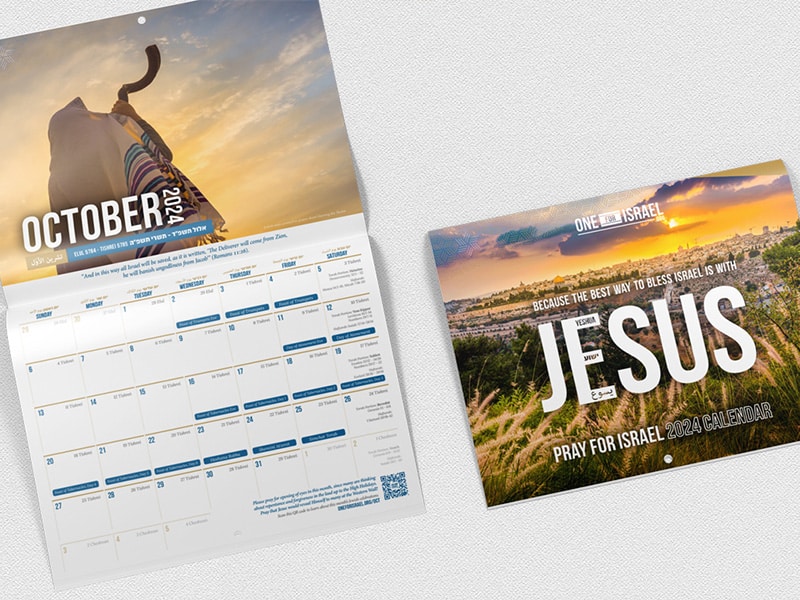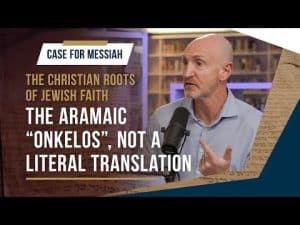If you find this story bewildering, you are not alone. Even before we get to the talking animals, why is a diviner talking to and hearing from God? Aren't diviners de facto in cahoots with the other side? Why does God appear to change his mind about whether or not it’s ok for Balaam to go? Four times? Why does this man who seems intent on obeying God get portrayed as a baddie even through to the New Testament (2 Peter 2:15, Jude 1:11)?
There are amazing parts to the story too – Balaam ends up giving some seriously powerful prophecy. Numbers 22-25 are packed full of amazing Torah treats just waiting to be unwrapped.
The story of Balaam
The people of Israel are trudging their way from Egypt and are getting close to the Promised Land. They very politely request passage through sovereign territory from the Edomites and then the Amorites, but in both cases, they are refused, and then attacked. However, the people of Israel defend themselves and win, and then capture the territory. With Edom and the Amorite territory unintentionally under their belt, the people of Israel press onwards. The King of Moab, Balak son of Zippor sees them coming his way and panics. He thinks he knows what might work… there’s a magic man called Balaam who is in touch with the gods… perhaps he could come and put a curse on the Israelites? Balak sends his top people with a fabulous cash incentive to see if Balaam was up for the cursing challenge. And here is where it gets confusing.
Balaam is a well known diviner, and sorcery is forbidden by God. Yet he seems to be confident that he hears from God, and concerned to do what God says. God tells Balaam not to go, because the people of Israel are to be blessed, not cursed. So Balaam obeys – he refuses to go and assures Balak’s men that it’s not a matter of money.
But maybe it is.
Because Balak sends back higher ranking men with a more tempting offer, and it seems to have done the trick, because Balaam goes back to check with God – are you sure I can’t go? Then God, strangely, it would appear, relents. He gives Balaam permission to go, but only to say what he tells him to say. So Balaam sets off, with permission. But then he is stopped in his tracks, by the Angel of the Lord no less, and his donkey refuses to budge and explains why. With words. The whole incident is highly irregular, which really should be a heads up for all concerned. If you really want to know what God thinks about this going-to-curse-Israel endeavour, there's your answer – he doesn't want Balaam to go.
Balaam says, “I won’t go then, if you don’t want me to”, but yet again, rather bizarrely and seemingly contrarily, God gives him permission to proceed. What is that? Does God mind him going or not?
Balaam goes and meets Balak but is unable to utter a negative word over Israel, and instead blesses them three times over, with some amazing prophetic words to boot.
Two key verses to help us unlock the whole saga
The first key verse is Numbers 23:19, reassuring us about God's unchanging nature and fidelity to his word:
“God is not a man who lies, or a son of man who changes his mind!
Does He speak and then not do it, or promise and not fulfill it?”
On the one hand, it seems that God has changed his mind (several times over) but on the other hand, when we look at what God says in the first place, he has been utterly consistent.
The second key verse is Numbers 22:12 – God’s words to Balaam right at the start of the whole debacle:
“Do not go with them! Do not curse them, for they are blessed!” (Numbers 22:12)
The people of Israel are not to be cursed, but to be blessed. God is intent on protecting Israel from curses and invocation of evil, and making sure that they are blessed. That is his initial statement, and he DOES NOT BUDGE from it one iota, does he? Not once do we see him wobble or fail in this regard. He protects Israel from curses and evil pronouncements, and he maintains their blessing and covering the entire time. He said it, he promised it, and he made sure that it was done according to his word, consistently. Just as he said.
YET. Yet… there is the issue of free will. And this is why we have the back and forth tussle with Balaam. God has made his heart, his intentions and his will known to Balaam, but he still gives Balaam permission and freedom to act in opposition to his will.
So far, so good. But then what’s with the donkey getting held up by the Angel? Was it ok for Balaam to go, or wasn’t it? What about Balaam’s concession and offer to return?
I think here God is showing not only Balaam but also the reader (you and me) what he really wants in this situation, and what he really thinks. He is not keen. Balaam gets the message, and does offer to go back, but he doesn’t really want to. And this is the thing.
What we want, our desires, are extremely important to God
God will not crush our freedom, and he will accommodate our choices. God has his own desires, loves, passions and purposes, and he will share them with us and invite us to join him. But he will not force us. He gives us permission to go our own way and do our own thing, but make no mistake, God’s ultimate thoughts, plans and purposes will not be thwarted.
Balaam’s desire to go and get the riches was accommodated, but ultimately the people of Israel were blessed, not cursed, just as God said in the first place. God creates room for our choices, but he will not allow us to usurp his overarching purposes. Even the Ishmael / Isaac story shows us that God does exactly what he intended to do in the first place anyway. He is not derailed. He ploughs on with plan A.
Balaam gives the appearance of obedience and submission, but his actions show that he does not really care about the revealed heart of God. He is not on God's side. God has told him what he thinks and how he feels, but Balaam does not share God’s concern for the people of Israel. He is more interested in the cash. He pays lip-service to God’s will, but he does not want to turn back at all. He is not interested in the fate of Israel.
This story shows us the extraordinary interplay that is constantly at work in the universe between God’s sovereignty and our free will.
If Balaam had correctly perceived what God was saying in the first place (I love Israel, and I want to protect them and bring only good to them) then he wouldn’t even have had to check a second time if it was ok to go and curse them. The minutiae of the “go/don’t go” debate is laughable when we listen to God’s initial pronouncement. Balaam was looking for God’s permission, but God wants us to agree with and to join him in his will, not begrudging obedience.
We might stress about decisions and discovering God’s will in certain situations, but often God has laid out his heart and his purposes already. Have we really paid attention to what he’s already said? Before we get tangled up in precise do's and don'ts, have we really tried to understand what God cares about?
Despite all of God’s protection of Israel from supernatural evil, Balaam showed the King of Moab how he could trick the people of Israel into idolatry (Numbers 31:16), and that led to trouble, because God would not override Israel's free will either. Still, some amazing pronouncements were made from the mouth of Balaam, and this miracle of reversed curses was logged in Israel’s history as a wonder and sign of God’s great blessing (Joshua 13, 24, Nehemiah 13).
Our freedom to choose costs God dearly. Freedom is expensive, as any veteran can tell you. It cost God the life of his one and only Son, our Messiah Yeshua. But without freedom, there can be no love. God in his love will not override our freedom, and will accommodate our bad choices. It is a price he is willing to pay. But he longs for us to freely come into agreement with his will and for our hearts to grow to match his heart.
“Teach me your way, O LORD; I will walk in your truth: unite my heart to fear your name.” (Psalms 86:11)
God's purposes for Israel prevail
God was intent on preserving Israel not only because he loved them (although he does, very much) but also because it was through Israel that he would come into the world as the Messiah, and accomplish salvation for all – both Jews and Gentiles. Balaam unwittingly utters these Messianic prophecies:
“He crouches like a lion or a lioness— who would rouse him?
He who blesses you will be blessed, and he who curses you will be cursed.” (Num 24:9)
“I see him, yet not at this moment. I behold him, yet not in this location.
For a star will come from Jacob, a scepter will arise from Israel…” (Num 24:17)
The Messiah to come was the seed among the people of Israel, who were so fiercely guarded by God. The parallels with Jacob's own blessings to Judah are unmistakable. We often refer to this story to say that God can use anyone to speak his word – even a donkey! But we see that he also used the crooked diviner, Balaam, which is just as great a miracle, and also the famously stiff-necked people of Israel.
God will accomplish his purposes for Israel and the world, and he will not force anyone against their will. Rather he shares his heart with us and invites us to join him as he works in the world. God's promises to Abraham continued on, and cursing or blessing Israel will come back on the deliverer. God has chosen to work through Israel, and is not one who uses people and then discards – his love and concern for Israel continue today. Every word of God's stated plans and purposes for Israel will come to pass, exactly as he said.
“God is not a man who lies, or a son of man who changes his mind!
Does He speak and then not do it, or promise and not fulfill it?”














